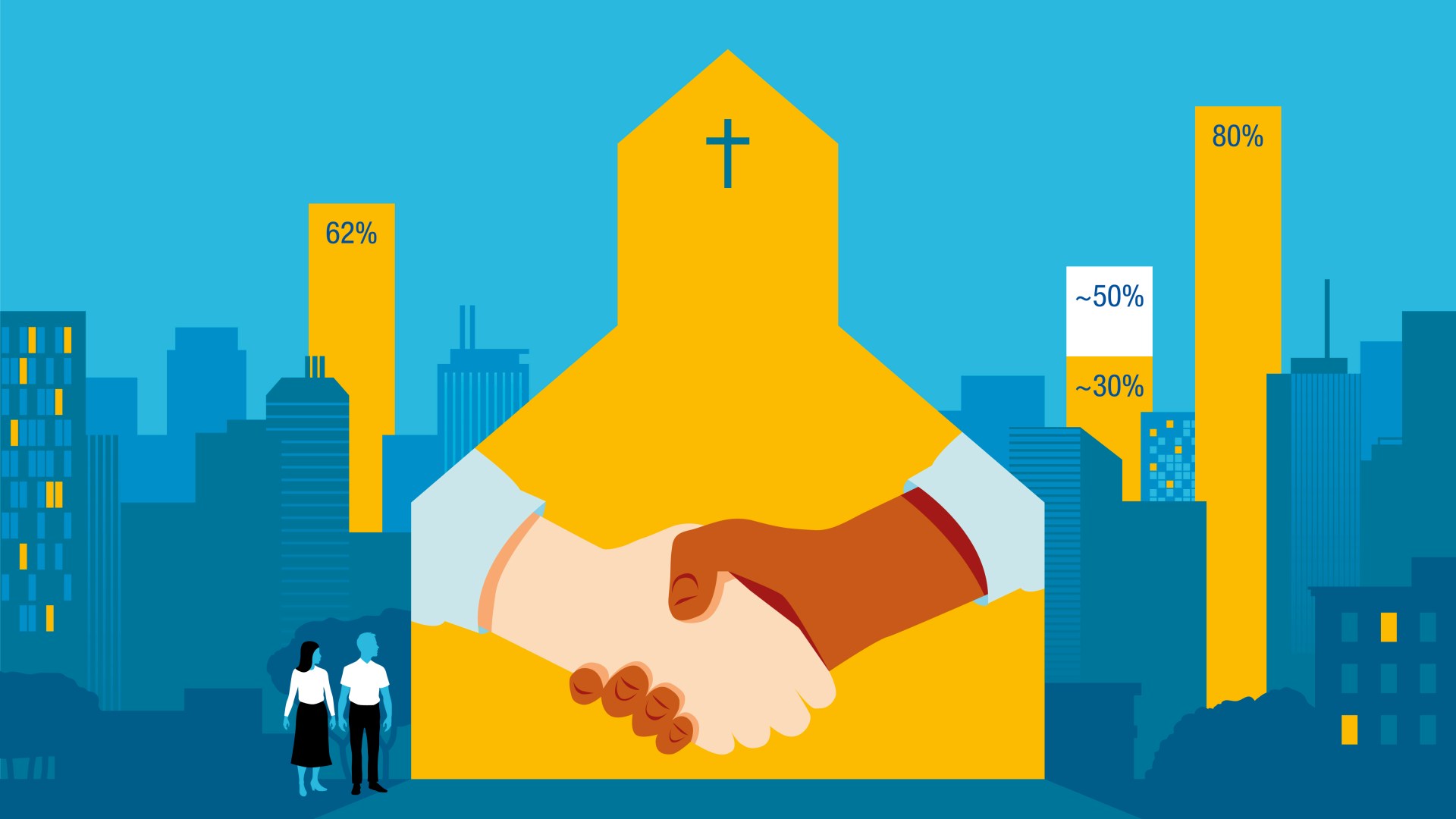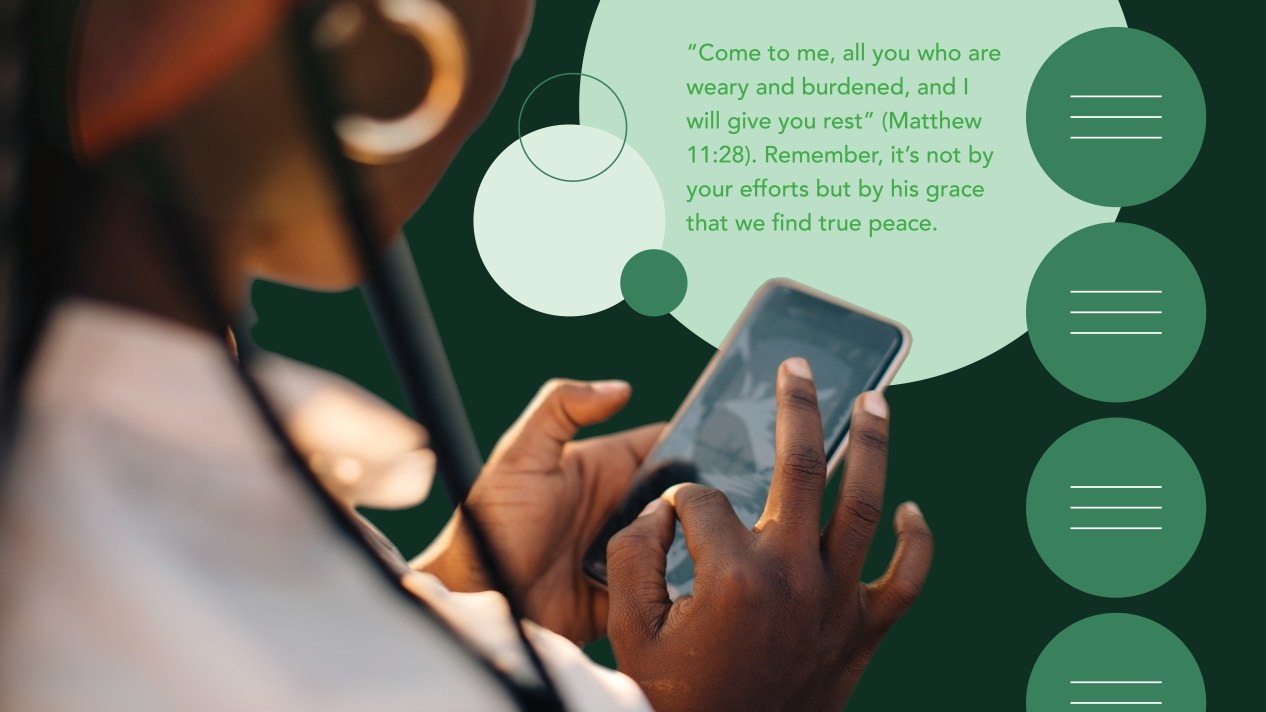Casey Cleveland, lead pastor of The Avenue Church in Delray, Florida, has a hunch.
“I'm catching the vibe that people want the church to be the church,” he says. “Even for those who don't understand theology—the world is asking us to step into being the church.”
Cleveland isn’t the only one catching the vibe. New research from Barna and Gloo shows that people across the country have expectations for the churches in their communities. Even those who haven’t darkened the door of a church in decades have thoughts about the church’s role in society.
Fortunately, data can help us understand how people view the church. In particular, four new statistics provide a window into what people hope to see from the church, and what it may look like to reach local communities with the gospel.
74% of U.S. adults believe the church offers hope to people.
Be encouraged, pastor, by the fact that nearly three quarters of both church and churched people see the church as offering hope. There’s a lot of darkness out there, and you’re doing the work of light.
However, while many Americans believe the church offers hope, there is a gap in tangible expressions of that hope. Only 53% of U.S. adults believe the church makes a real difference, and 44% view the church as being known for the things they are against. Consider:
- Does your church communicate what Christians are for or against?
- What could your church offer—or what ministry does your church already offer that could be more widely promoted—that could help people connect their belief in hope to a real experience of that hope?
- How can you show your community that the church isn’t defined by being against others but advocating for their good?
62% of U.S. adults feel Christian pastors have been strong leaders when it comes to racial justice.
The good news: 62% represents a lot of people!
The bad news: The disparity between churched and unchurched people is staggering on this issue: 82% of churched people feel this way. Only 54% of their unchurched peers agree.
What a chance to step up, pastor! Americans are looking for a way forward when it comes to issues of racial justice, and the church can be a key player in providing guidance. Sermons on racial justice are necessary and important, but they aren’t the primary way that the unchurched will be exposed to your church’s heart for reconciliation. As Savannah Kimberlin, director of published research at Barna says, “We've got to think about engagement and not just content focus.” Take some time to consider:
- the racial makeup of your community, congregation, and fellow local churches
- who you might partner with in the effort to further racial justice in your community
- how your congregation can invite others into a safe and humble environment
Many unchurched people would be interested in preaching or church programs designed to help them flourish.
Depending on the city, ⅓ to ½ of unchurched Americans responded that they would “definitely” or “probably” be interested in preaching or programs that helped them achieve:
- spiritual growth
- financial well-being
- mental and emotional well-being
- vocational/career well-being
- relational well-being
This data resonates with the uptick in both positive and negative online searches during the past year. As they faced forced isolation, many people came face-to-face with themselves in a way they’d been able to avoid amidst the noise of pre-pandemic life. Online searches for “depression” and “suicide” rose. But so did searches for “exercise” and “cooking.”
People were, and still are, trying to make meaning and find purpose in a confusing world.
What may it look like for your church, or a church you partner with, to offer:
- a financial literacy course
- meeting space for community members to gather around a shared interest or hobby
- job placement support, like resume editing or interview coaching
Unchurched people aren’t the only ones limping toward building up their well-being. Barna found that 32% of U.S. churchgoing adults say they have seen a decline in their spiritual lives over the past few months.
If you’re wondering if your congregants feel the same way, Barna has a 15-minute free assessment that you can offer to your congregants. This easy-to-implement tool shows you how your people are and what they need in a way that’s equal parts personal and data-driven.
80% of millennials agree that experiencing God in a service alongside others, in person, is very important to them.
The generation often chided for their relationship to the virtual space craves the physical world. In fact, while 73% of millennial churchgoers say the pandemic made them more open to digital church, 46% say they struggle to focus during an online church service. The online world may be a way to connect initially with millennials, but it doesn’t offer the entirety of what they’re seeking.
Millennials, the oldest of whom are turning 40 this year, are yearning for community and connection. This hunger provides local churches with a tremendous opportunity to show hospitality to a generation that they have often struggled to reach.
Imagine how these suggestions may play out in your local context:
- A lunch for professional 30-somethings with a keynote speaker and discussion
- Parenting programs (over half of millennial women are mothers!) that include opportunities for families to form friendships with each other
- Outreach events that bring people together to meet meet a physical, local need
The more you know about your church and community, the more you can engage them effectively. Designed not to overwhelm but empower, the Barna City Toolkit shows you what people in your local area are thinking and feeling about the church, the world, and their own needs. If you’re ready to gain real-time insights about your city that will shape your ministry, check out the toolkit today.
Posted


